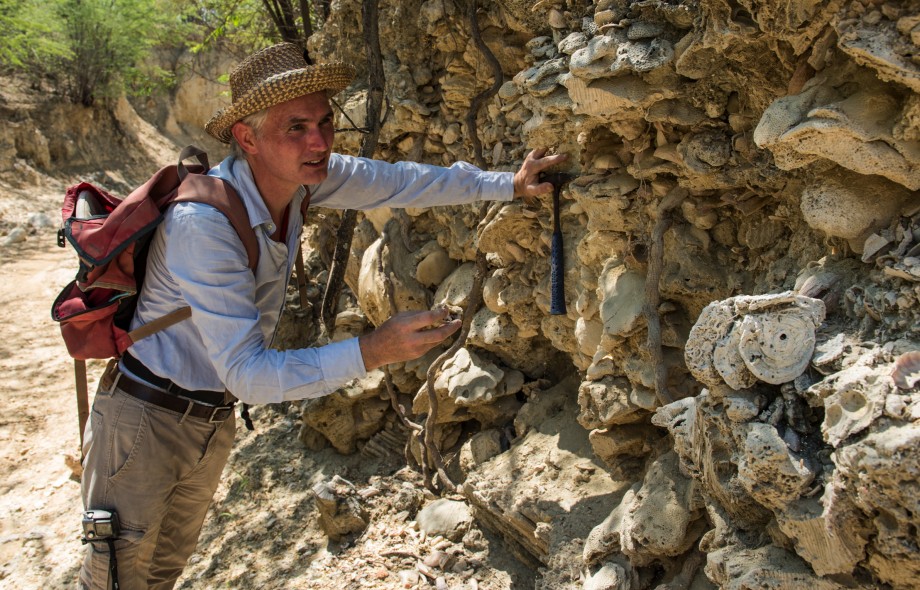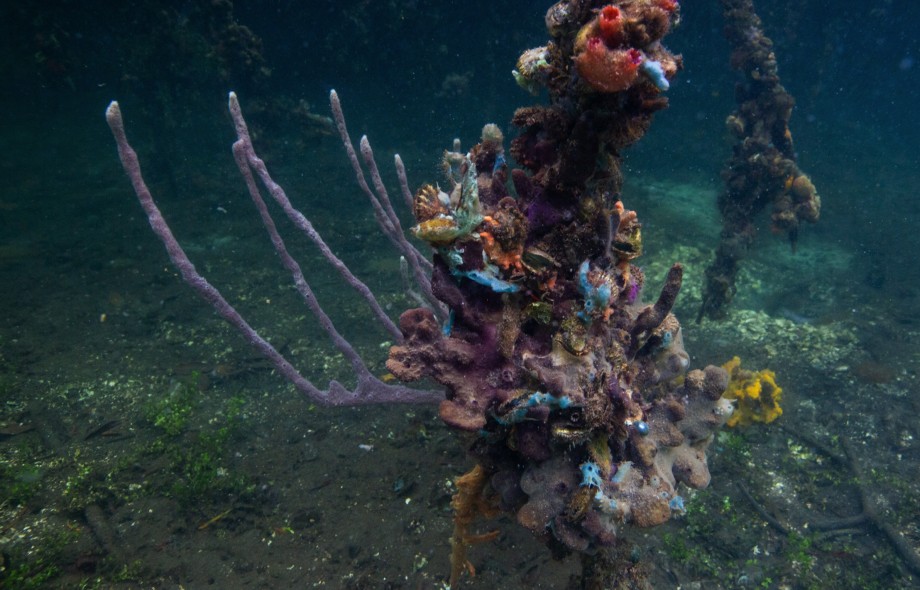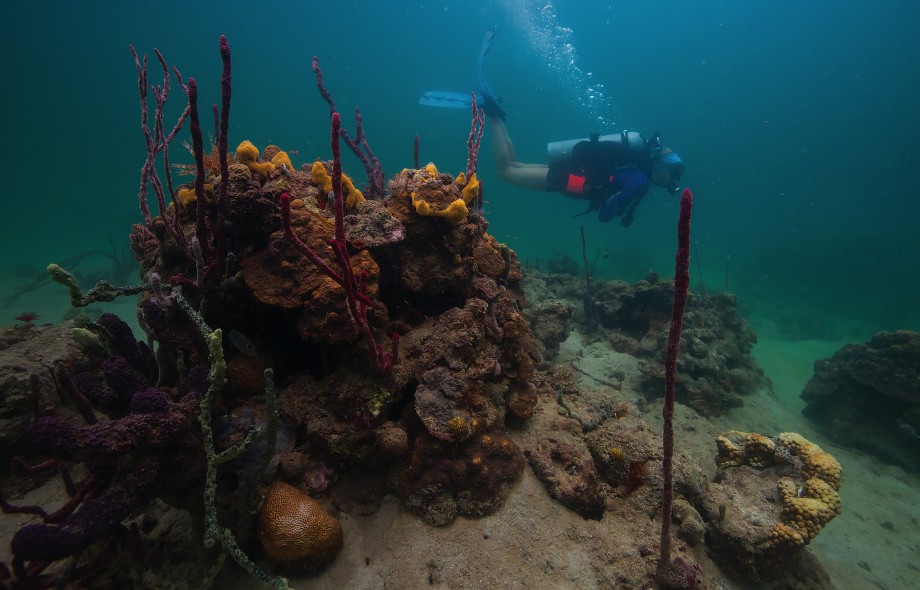A groundbreaking study of 7000-year-old exposed coral reef fossils reveals how human fishing has transformed Caribbean reef food webs: as sharks declined by 75% and fish preferred by humans became smaller, prey fish species flourished —doubling in numbers and growing larger. This unprecedented look into prehistoric reef communities shows how the loss of top predators cascaded through the entire food web, shifting the balance amongst coral reefs.
You are here
Projects
& Stories
Bocas Del Toro
June 30, 2025
May 25, 2020
One of the big questions about using DNA in seawater to make species lists is whether it comes from a specific site or has floated in from elsewhere. In this study researchers could distinguish different marine habitats using only DNA.
May 11, 2018
Rapid increases in ocean acidity puts crustose coralline algae in a growth predicament, research by a Smithsonian marine scientist shows.
August 11, 2014
Estimating shark populations on degraded Caribbean reefs is complicated, especially when there few around. A pioneering member of the O’Dea lab has developed a technique to estimate shark populations — both past and present — using their microscopic skin scales



